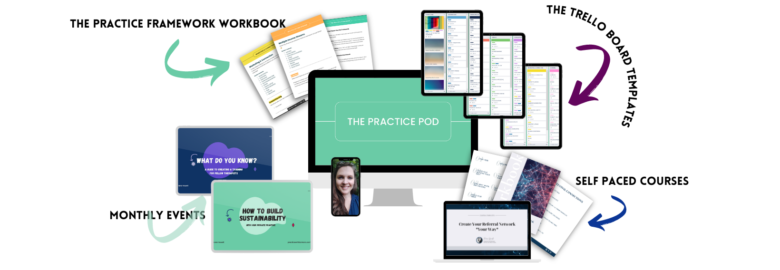Tamara Howell
Private Practice Therapist
Vegan Psychotherapists
Hello and Welcome
If you have found your way here, welcome.
My hope is for you to find a therapist you love to work with, who provides an excellent clinical experience and a thoughtful and respectful therapy space.
For me, finding someone like this was incredibly impactful and healing, and I want everyone to have that experience.
tamara
How You Might Be Feeling
Sometimes we feel a bit broken and we don’t really know why. It might look like exhaustion, or feeling flat, or not enjoying things you used to love. Or it might be hating your job, wanting a long term relationship or figuring out what the point of life is.
It is usually an involuntary swerve in the projected path that brings people to me. Dealing with conflict at work may be causing you stress, maybe because your boss is dismissive, or you might find managing a team challenging. Your role might have made you aware that your internal monologue is discouraging you and making you question yourself.
Or maybe you are killing it at work – accomplished, assertive and propelling forwards… and yet you wish you could feel more confident in your romantic relationships, more self assured and less needy… because even the word neeeedy is excruciating, isn’t it?
Maybe you’ve discovered that you would like to change your relationships with partners, work, family or friends… figure out how to set boundaries. Or repair your relationship with yourself so that you don’t replay awkward moments over and over whilst trying to fall asleep, wishing things were different and saying to yourself.
Some of the reasons people come to me…
These are some of the things that bring people to my practice. You may identify with them, or find them challenging to read, and I want to reassure you that we all need to regroup and repair from time to time.
APPROACHING BURNOUT
The impact of comparison and achievement culture is sneaky and stealthful. It edges up on people day by day, incrementally increasing stress levels so tolerance increases and joy decreases.
The impact of comparison and achievement culture is sneaky and stealthful. It edges up on people day by day, incrementally increasing stress levels so tolerance increases and joy decreases. The impact often manifests in the physical, or through impaired sleep. A feeling of missing out on life’s true purpose, or that others are doing better, or that you can’t keep up eventually leads to burnout.
This term used to be limited to career only, but the concept has been extended to include other situations where you don’t have enough space for rest, for self, and for creativity. Some people are worried I’m going to suggest they start painting, but that’s not what I mean (although painting is great of course). I mean that when we don’t have balance and time for rest, the work, or the parenting, or the volunteering don’t have space to be fulfilling. Even the most meaningful of activities can lead to burnout if we don’t prioritise balance. Some of the work I do in therapy is supporting clients as they figure out how they can do that.
INTERCULTURAL ADJUSTMENT
There are many situations that lead us to feeling like we don’t belong. Growing up in a culture other than our parents’ countries of origin can lead to a feeling of being different from everyone else, feeling separate or that nobody quite understands our life.
There are many situations that lead us to feeling like we don’t belong. Growing up in a culture other than our parents’ countries of origin can lead to a feeling of being different from everyone else, feeling separate or that nobody quite understands our life. There are many benefits to cross cultural upbringing, like adaptability and having an expansive experience of cultures and languages, but there are also challenges which can show up in our relationships, careers and self concept.
The book Third Culture Kids: The Experience of Growing Up Among Worlds (Pollock, Van Reken & Pollock) has become a seminal piece of literature on the shelves of many Cross Cultural families, expatriates and immigrants, followed closely by The Culture Map (Erin Meyer), Boarding School Syndrome (Joy Schaverian) and The Making of Them (Nick Duffell). There is always more nuance to an individual’s experience than in one book, and exploring the permanence of grief against the impermanence of location is a fundamental theme in my work.
I also work with people who didn’t grow up abroad but now live away from their country of origin, and people who are returning to and reintegrating with their country or culture of origin. Searching for roots, or feeling rooted in multiple places, are often themes in my work as are intergenerational trauma, family relationships and the chameleon effect. We may look at practical steps to increase comfort and connection, self care and structural care as well as a more conceptual exploration of identity.
ADDICTION AND CONNECTION
You may have heard Johann Hari’s TED talk “The Opposite of Addiction is Connection” by now, and if you are interested in or affected by addiction you may have come across the work of Gabor Maté.
You may have heard Johann Hari’s TED talk “The Opposite of Addiction is Connection” by now, and if you are interested in or affected by addiction you may have come across the work of Gabor Maté. I love the compassionate and trauma-informed approach they share, and know that for people who find themselves in the spiral of despair that accompanies addictive processes, it can be incredibly healing (if a little uncomfortable) to be treated with such care and understanding.
Having started my professional journey in the world of addiction treatment, I have a keen interest in supporting people affected by addiction. So many people’s lives are touched by addiction, and that might look like using prescription or illegal drugs, or it might be someone who intuitively learned to adapt their behaviour and voice level based on the way the door was opened by an alcoholic parent returning from work.
It might be a person who notices a pattern in their relationship choices that leaves them in excruciating pain or for you it might be just wondering if you have hangovers a bit too often.
You might find words like codependency, people pleasing or love addiction helpful for understanding what you are going through, or you might find labelling terminology outdated and judgmental. I’m even a bit reluctant to use the word addiction in general because there is so much negativity and heaviness associated with it.
It shows up in many ways individually and on a societal level, and my approach, whether I am supporting someone just starting to question their relationship with alcohol or someone reintegrating at home after graduating from inpatient addiction treatment, is to provide shame reduction, self understanding and continuity of care.
Approach & Modality…
When I meet someone for the first time – anyone, not just clients – my intention is for them to feel heard. I want each person to feel welcome, cared for and above all, that I am in your corner. So many of us wander through the world without that and when I first found a therapist who was, it changed everything for me.
I practise what I call true radical empathy, which is essentially an intention to care authentically and be compassionate. I read about child development, worldwide politics and actively engage in professional forums to be able to support my clients as we work to more fully understand how they have been impacted by the messages they received from their caregivers, the education system and society as a whole.


